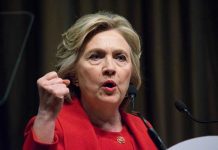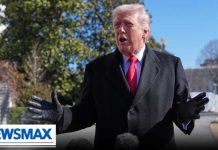
The Biden administration’s decision to remove Cuba from the state sponsors of terrorism list has sparked significant debate and anticipation for the future of U.S.-Cuba relations.
At a Glance
- The Biden administration plans to lift Cuba’s designation as a state sponsor of terrorism.
- This decision is part of a deal facilitated by the Catholic Church to release political prisoners in Cuba.
- The U.S. will ease some economic pressures on Cuba and reverse a 2017 memorandum by Donald Trump.
- Human rights groups and activists have urged the Biden administration to lift the designation.
- The decision could be reversed by the incoming Trump administration, with Marco Rubio as Secretary of State-designate.
Biden’s Policy Shift on Cuba
The Biden administration has announced its intention to lift Cuba’s designation as a state sponsor of terrorism. This decision is part of a broader move to address human rights issues, sparked by talks led by the Catholic Church concerning the release of 553 political prisoners in Cuba. The move comes after years of strained relations following the Trump administration’s decision to reimpose the designation in 2021.
Despite facing opposition from Republican lawmakers and some Democrats, particularly those from Florida, the administration believes this measure could pave the way for a significant shift in U.S-Cuba policy. Biden’s team asserts that there is “no credible evidence” that Cuba is currently supporting international terrorism, which underpins their decision to remove the nation from the list.
Impact on Political Prisoners
A key component of the decision focuses on human rights and the expected release of “many dozens” of political prisoners, including those jailed after protests in July 2021. The Biden administration assures that by the end of its term, a significant number of these prisoners will be freed. These efforts are part of President Biden’s aim to foster dialogue between the U.S., Cuba, and the Catholic Church. The White House press secretary highlights the international encouragement Biden has received to take steps to advance the human rights of the Cuban people.
The Biden Admin's decision to lift Cuba from the list of State Sponsors of Terrorism is a disgrace & national security malpractice. The Cuban regime harbors terrorists in its own country while supporting Hamas, Hezbollah, and other global terrorists. https://t.co/TuF3r3JtOO
— Senate Foreign Relations Committee Chairman (@SenateForeign) January 14, 2025
Economic Implications and Political Backlash
The Biden administration is set to ease economic pressures on Cuba, reversing the 2017 memorandum that toughened U.S. policies against the nation. This includes issuing a waiver for Title III of the Helms-Burton Act, signaling a shift toward improved economic ties. While Havana residents have welcomed the news, viewing it as beneficial for the national economy, opposition remains fierce among some U.S. political figures.
Senator Ted Cruz strongly criticized the decision, asserting that Cuban terrorism has not ended. Cruz has committed to working with former President Trump and Congress to potentially reverse any measures taken by Biden. The Cuban government, while expressing gratitude, acknowledges that the decision is limited and remains open to developing respectful relations with the U.S. despite possible policy reversals in the future.
“Today’s decision is unacceptable on its merits. The terrorism advanced by the Cuban regime has not ceased. I will work with President Trump and my colleagues to immediately reverse and limit the damage from the decision.” – Ted Cruz
Sources:
- Joe Biden moves to lift state sponsor of terrorism designation for Cuba, part of deal to free prisoners
- Biden moves to lift state sponsor of terrorism designation for Cuba, part of deal to free prisoners | Politics | gazette.com
- Biden administration will remove Cuba’s designation as a state sponsor of terrorism – DNyuz







